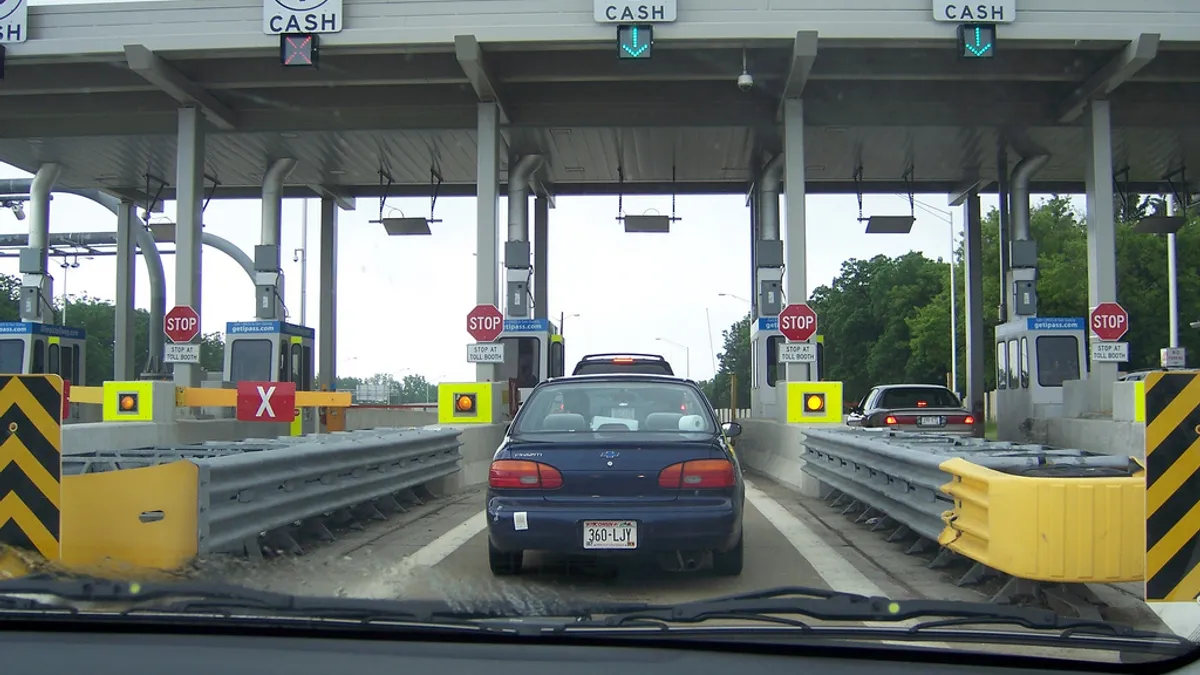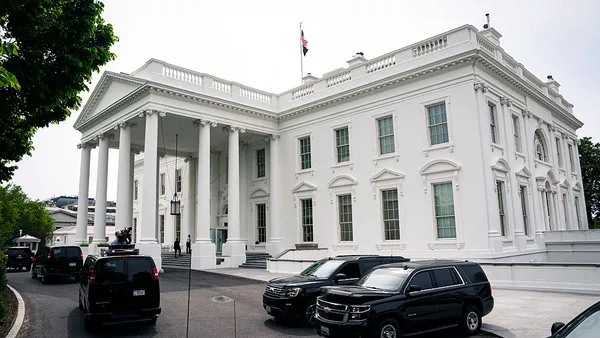Dive Brief:
- The Illinois Tollway announced Thursday that it had set a preliminary budget for 2017 that includes $951 million for Move Illinois projects, as well as $336 million for a maintenance and operation program, according to Equipment World.
- Major Move Illinois capital initiatives planned for next year include the Illinois Route 390 Tollway ($374.5 million), SmartRoad upgrades to I-90 ($163.5 million), reconstruction of I-294 ($56.5 million) and expansion and maintenance of the I-PASS system. The remaining funds will go toward development, repair and maintenance.
- Move Illinois is a 15-year, $12-billion capital project program financed by bonds and tolls. The Illinois Tollway, which does not use state or federal funds, estimated that next year's revenue will be approximately $1.38 billion.
Dive Insight:
Because the Tollway relies on user fees only for its operations, this summer's near-shutdown of $2 billion in Illinois Department of Transportation projects had little impact on its maintenance or capital agenda. State lawmakers had reached a stalemate in budget negotiations but passed a stopgap bill to ensure road and highway construction continued.
The news wasn't so good for New Jersey this summer when Gov. Chris Christie shut down all non-essential state transportation projects after he and legislators could not come to an agreement on how to counterbalance the new 23-cent gas tax increase. Christie's order shelved approximately $3.5 billion of projects and sent workers home during the busiest time of year — when many transportation workers earn the money that will get them through the idle winter months.
After stops and starts in negotiations, Christie and state Democrats finally came to an agreement in early October on taxpayer benefits that ended the shutdown. What the fallout will be, however, is still an unknown. Aside from the impact on construction workers, the Utility and Transportation Contractors Association said the cost of remobilization could result in an extra $24 million in costs to the state.
Several states across the U.S. are struggling with ways to fund necessary infrastructure repairs and upgrades. In a May report, the American Society of Civil Engineers found that the U.S. will give up 2.5 million jobs and $4 trillion in gross domestic product over the next 10 years if it can’t figure out how to make up a $1.44 trillion infrastructure funding shortfall. According to the ASCE, the U.S. has only come up with $1.88 trillion of the $3.32 trillion needed. Without full funding, the organization predicted that the infrastructure shortfall will increase to $5.18 trillion by 2040.













